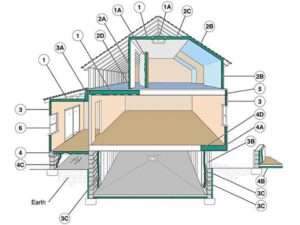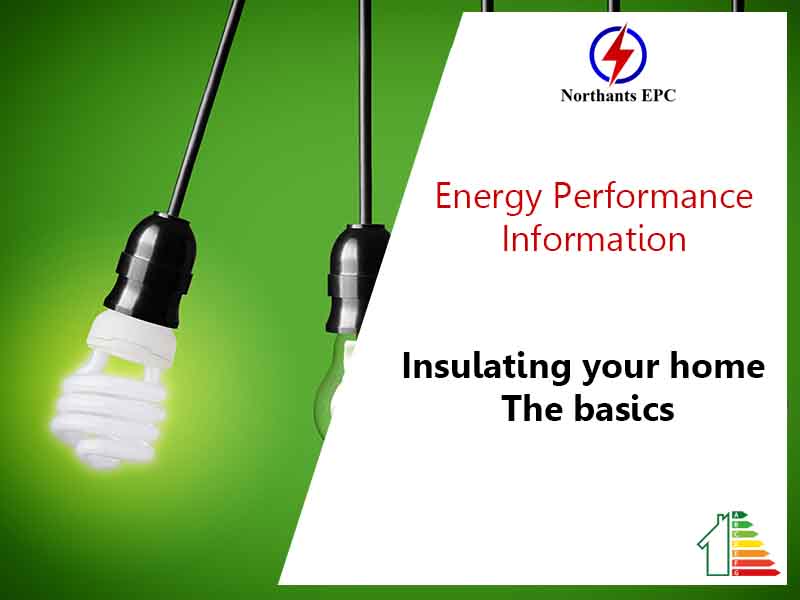Insulating your home – The basics

If you want to keep your energy bills low and reduce your carbon emissions, installing insulation is one of the best ways to keep the heat in your home, and the cold out.
From quick fixes to professional installations, we take a look at everything you need to know about insulating your home.
Start with the walls
Around one third of all the heat lost in an uninsulated home escapes through the walls, so it’s a good place to start. By properly insulating your walls, you will save energy and cut costs off your heating bill.
First, you need to work out your wall type. Most homes will either have cavity walls or solid walls. Cavity walls usually have an even pattern, with all the bricks laid lengthways.
If your home has solid walls, the bricks will have an alternating pattern, with some bricks laid across the wall so you can see the smaller ends from the outside.
Cavity walls can be insulated by a professional, who will inject insulation material into the cavity – or space – in the wall. A specialist will drill holes in the outside walls, inject insulation through the holes and then seal them with cement.
Solid walls can be insulated from the inside or outside of your home.
Internal wall insulation is done by fitting rigid insulation boards to the wall, or by building a stud wall filled in with insulation material. External wall insulation involves fixing a layer of insulation material to the wall, then covering it with plasterwork or cladding.
Costs, savings and installation
The costs and savings associated with insulating your walls will vary depending on your wall type and house size. Internal solid wall insulation for a semi-detached house, for example, will cost around £8,200 to install, but could save you around £255 a year on your energy bills.
You should also check that the installation is covered by an appropriate 25-year guarantee. For solid walls, your installer may be a member of the SWIGA guarantee scheme; for cavity walls, they should have a CIGA guarantee. Alternatively, your installer may offer an independent insurance-backed guarantee.
